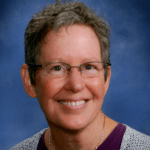Read: Colossians 3:8-17
As the Lord has forgiven you, so you also must forgive. (v. 13)
A primarily white church in Tennessee hired a new lead pastor who was young and black. After his first sermon on Ephesians 3, exhorting the congregation to love one another and forgive past wrongs, an older black man requested a meeting. He told the pastor an appalling story about how he had suffered at the hands of white Christian men. The pastor wholeheartedly believed everything he had preached, but this conversation helped him realize that he had neglected to take into account the larger context.
Daily wrongs, done unintentionally in every relationship, are easily forgivable. Deeper wrongs require much more. These wrongs may seem unforgiveable, yet we are still called to forgive just as we have been forgiven (v. 13). We are even admonished to reconcile wrongs with one another before we come to God in worship (Matt. 5:23-24). That doesn’t mean ignoring sin or abuse; humble listening and accountability must be part of the process of forgiveness. But it’s good to remember that forgiveness is possible with God, with intention, effort, time, and the power of the indwelling Holy Spirit—and sometimes the help of professionals. As we acknowledge and confess our own sins, as well as the sins of others against us, to God in prayer, our capacity to forgive will grow. Imagine the witness to the world if we could live as forgiven and forgiving people in this world of hurt.
As you pray, consider your relationships and ask God to open your heart to his healing work to forgive.
About the Author
Bonnie Nicholas, LMSW, retired in 2020 after serving as Director of Safe Church Ministry in the Christian Reformed Church in North America.
- Bonnie Nicholashttps://www.woh.org/author/bonnie-nicholas/
- Bonnie Nicholashttps://www.woh.org/author/bonnie-nicholas/
- Bonnie Nicholashttps://www.woh.org/author/bonnie-nicholas/


